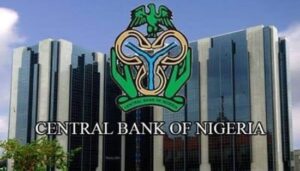Spread the love
To boost access to finance for small businesses in Nigeria and to support increased trade, IFC has announced a partnership with Union Bank of Nigeria Plc to help the bank expand lending to hundreds of businesses operating in critical sectors in the country, including food, healthcare, manufacturing, and services.
IFC’s $30 million loan will allow Union Bank to increase trade financing and working capital lending to Nigerian businesses, including those whose cashflows have been strained by recent disruptions in global and local markets.
“As a bank, we are deeply committed to enabling success for SMEs. We understand the critical role of small businesses in leading Nigeria’s economy towards growth. This funding from IFC will enable us to extend financial relief to our customers during this difficult time. I am confident that the funds will help these businesses harness opportunities, and preserve jobs,” said Mudassir Amray, Managing Director and Chief Executive Officer of Union Bank.
READ ALSO: Union Bank receives Euromoney market rankings in 5 categories
“Strengthening supply chains and trade flows through working capital financing sets the stage for faster growth and economic diversification in Nigeria. IFC’s partnership with Union Bank is part of a wider strategy to ensure the flow of goods and services are sustained despite global trade disruptions,” said Kalim M. Shah, IFC Senior Country Manager for Nigeria, Liberia and Sierra Leone.
Recent disruptions to the global economy following COVID-19, including from rising inflation and limited access to finance, have left many businesses in Nigeria, particularly SMEs, struggling with supply chain shortages, increased cost of doing business and limited trade growth.
The partnership with Union Bank underscores IFC’s commitment to supporting smaller businesses in Nigeria, helping them preserve and create jobs, and access critical inputs.
IFC has an active investment portfolio of $2.3 billion in Nigeria – the second largest in Africa after South Africa – across sectors including agribusiness, healthcare, manufacturing, infrastructure, technology, and financial services.
Recognizing the key role of the private sector in achieving IDA’s objectives and the World Bank Group’s twin goals, the window provides a source of co-investment funding and guarantees to de-risk private investments supported by IFC and the Multilateral Investment Guarantee Agency (MIGA).
You may be interested

‘I’m Incredibly Proud’– Arokodare Talks Up Genk’s Unbeaten Home Streak
Webby - December 23, 2024Tolu Arokodare is full of excitement followingGenk’s historic victory over Anderlecht, reports Completesports.com.Sunday’s win at the Cegeka Arena was the…

WAFU B U-17 Girls Cup: Ghana Edge Gallant Flamingos On Penalties In Final
Webby - December 22, 2024Despite a spirited performance Nigeria’s Flamingos lost on penalties to hosts Ghana on penalty shootout in the final of the…

Bournemouth Equal Burnley’s Old Trafford Feat After 3-0 Win Vs United
Webby - December 22, 2024Bournemouth’s 3-0 win against Manchester United on Sunday meant the Cherries equaled Burnley’s feat at Old Trafford.United went into the…
























![American Pastor, David Wilson Seen Eating The Box Of Woman Who Isn’t His Wife [Video]](https://onlinenigeria.com/wp-content/uploads/2019/10/american-pastor-david-wilson-seen-eating-the-box-of-woman-who-isnt-his-wife-video-150x150.jpg)








